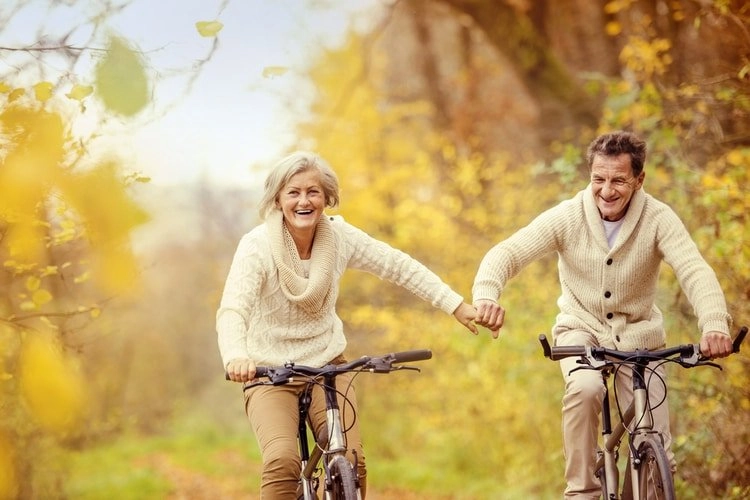Lykke (Loo-ka) is the Danish word for happiness and we could all take a cue from the Danish lifestyle. It’s no accident that Denmark is consistently ranked one of the world’s happiest countries, according to the World’s Happiness Report. Denmark scores high in work-life balance, gender equality, free education and healthcare, low crime rates and social security safety nets.
Danes also make balance a priority which enhances their happiness factor. The Scandinavian practice of Lagom which means finding the balance of “not to much, not too little” creates happier people.
Scandinavian countries also rank high in gender equality which contributes to overall feeling of well being.
Nordic countries, while fairly prosperous, are not looking to create the world’s richest billionaires, they seek a healthy balance in life which has a positive effect on its residents. A common misconception is that the more money we have, the happier we will be. But research shows that wealth and well being aren’t the same thing.
We don’t all need to move to Denmark but tips from the Danes and other cultures around the world could help us all learn more about contentment.
Author and CEO of The Happiness Research Institute Meik Wiking traveled the globe to bring us happiness tips from other cultures. In his book, The little Book of Lykke, Wiking identifies six factors that contribute to happiness – togetherness, freedom, health, money, trust and kindness.
Here are some simple tips you can incorporate into your life:
Feel the Flow

Happiness can be found in what Wiking describes as “flow experiences” – those are the moments when you get lost in time and lose track of ourselves. This happens when we let go of expectations or what we should be doing and just get absorbed in what we are doing in the moment. Flow experiences can be found in just about anything you feel passionate about such as hiking, skiing, dancing, crafting or just getting out in nature and soaking up the views. Find these experiences in your own life, whatever they may be, and get in the flow.
Money
The old adage that money doesn’t buy happiness rings true. There is a point of diminishing returns once you have your needs met. Making more money to buy more things does not make people more happy. Try spending money on experiences and making memories, not things.
Giving back and being of service also leads to greater happiness. Try paying it forward the next time you’re at the drive through or volunteer your time to someone in need. Even a small gesture will make you feel good.
Be a Good Neighbor
Danes believe in a strong sense of community and getting to know your neighbors. Co-housing originated in Denmark where people organize their lives together to share common spaces like a kitchen, laundry and garden but maintain private living spaces.
This communal way of living is gaining in popularity throughout Europe and residents report less stress and more happiness by relying on others to help with cooking, child rearing and for socializing. Residents share time and resources to help each other out and feel supported by a village of people to rely on instead of feeling isolated.
The Greater Good
In general, Danes rely on each other in times of need and feel there is a connection between having a good life and the common good for all. While their taxes are very high, Danes generally are happy to pay the taxes because they feel they receive a high quality of life and will be supported if they are in need.
While we don’t all live in Denmark and receive the same benefits, we can find greater happiness by thinking of our community and lives as interconnected.

Get Moving
Danes generally ride their bike to commute to work or school so they’re getting daily exercise without having to hit the gym or do anything extreme. Regular exercise aids in the happiness factor and they’re not typically gym rats or taking extreme measures with diet or exercise.
Move a little every day and incorporate steps into your routine for greater well being. This can be as simple as taking the stairs instead of the elevator, walking around the block or taking a short stretch break.
Moderation
The Nordic lifestyle includes a healthy diet. Similar to the Mediterranean diet, it emphasizes whole grains, fresh seasonal produce including berries, fruits and vegetables, seafood and low fat dairy products. It’s designed to be seasonal and easier on the environment. It still includes the occasional treat and in general, is not about obsessing on what you eat, but maintaining a balanced lifestyle that leads to greater wellbeing. Being mindful about what you eat but enjoying your food without guilt leads to greater happiness than worrying about every calorie.
In Sweden, coffee breaks are a daily practice called Fika, where you take time away from your desk to really enjoy coffee (and perhaps a sweet treat) with friends or colleagues. It’s not about grabbing a coffee at your desk or in the drive through, but taking some time out to savor the break.
Go Alfresco
It’s well documented that getting outside and connecting with nature is good for your health and wellbeing. Boosting your mood and reducing anxiety are two good reasons to incorporate some time each day outside – even a short walk in the park helps lift your spirits. And if that’s not enough reason, there’s also the extra dose of Vitamin D and getting more steps in your daily routine. Even a short nature break – a walk around the neighborhood or taking your lunch outside will provide a better sense of well being.
So, take some happiness tips from our Nordic friends and hopefully these help you find more Lykke in your own life.
C’mon Get Happy
See his video on happiness

